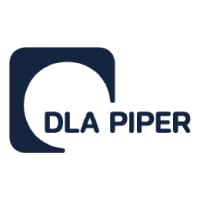

Legal and legislative affairs specialist | AAFAF



Julio Colon
Legal and legislative affairs specialist | AAFAF
What are the most significant cases, projects and/or transactions that you and/or your legal team have recently been involved in?
Within the functions I perform as legal advisor in the Office of Intergovernmental Affairs is the preparation of an analysis or legislative scoring, and appraisal of enacted acts to determine consistency and compliance with the Puerto Rico Oversight, Management, and Economic Stability Act (“PROMESA”), the certified Fiscal Plans and budgets, and the Plan of Adjustment of the Debt. More specifically, I also carry out a pre-intervention and pre-evaluation of post-enactment compliance of the legislative measure with Section 204 of PROMESA and its principles of fiscal neutrality, at the request of agencies and of the Legislative Assembly.
On the other hand, one interesting project to highlight, which I had the opportunity to promote and develop as advisor to the Real Property Evaluation and Disposal Committee was the “Renta Compuesta” Project (Compound Rent). The Renta Compuesta Project arises in part from the principles of Social Accounting and Social Return on Investment. In summary, the Renta Compuesta is a representative payment modality in which the agreed consideration for the lease of unused real property requested by Nonprofit Organizations is divided into two portions: one portion is paid in money; and another portion is paid in accordance with the services provided and evidenced by the nonprofit entity, through the execution of social and/or community actions.
I helped design this tool to embody a better model of public–private contracting one in which the Government, as steward of the collective will, not only fulfills its constitutional and contractual duties but also intentionally advances community well-being. By deploying innovative administrative practices anchored in the rule of law and sound public policy, this approach channels private capacity toward public purpose, safeguards institutional integrity, and catalyzes tangible social and economic value.
How do you approach managing legal aspects during periods of instability or crisis to ensure the organisation’s resilience?
In our organisation, legal matters arising in moments of instability or requiring rapid response are managed through an integrated legal governance model. Any serious legal issue is treated not just as a case, but as an institutional governance event: we activate a coordinated legal–fiscal–operational team, confirm authority and obligations, assess cost and compliance, and align the response with the fiscal plan and with key stakeholders. In practice, this means Legal Affairs, Fiscal Affairs, Operations, and Public Policy work as a single unit to ensure that every decision is lawful, fiscally sustainable, and realistically executable.
Based on your experiences in the past year, are there any trends in the legal or business world that you are keeping an eye on that you think other in-house lawyers should be mindful of?
Based on my experience, contracts that are viewed as essential infrastructure will represent an important shift in the paradigms of modern public administration and in the dynamics of government procurement. Contracts that were previously considered “services” (energy, data, cybersecurity, waste management, operational continuity) are now being treated as critical infrastructure. This changes the standard of due diligence: termination, transition, and operational resilience clauses are becoming as important as price. The lesson for other legal teams is that contractual analysis is no longer purely civil/commercial; it is an analysis of governmental or corporate continuity under crisis.
What is a cause, business or otherwise, that you are passionate about? Why is this?
I am passionate about building legal and regulatory structures that change the way people interact with government. I believe the law should not be a barrier, or a maze that only experts can navigate, it should be an instrument that is accessible to every citizen. My focus has been on designing frameworks that put public proceedings, data, and decision-making within reach of the people they affect, so that access to information and opportunities is not limited to those with influence, budget, or inside knowledge. For me, democratizing how government operates is not only about transparency; it’s about equity. When you create systems that are predictable, comprehensible, and enforceable, you don’t just comply with the law, you build trust, reduce friction, and let communities participate meaningfully in shaping policy outcomes that affect their daily lives.